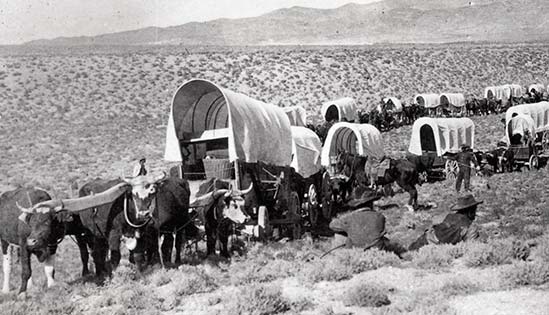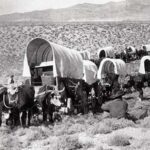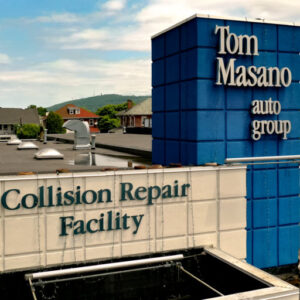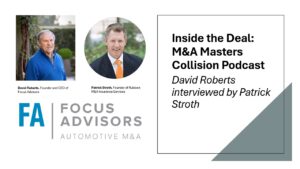Four significant acquisitions in the last six months are emphatic evidence of the momentous changes in the largest collision repair market in the US – Southern California with more than $3.5 billion in repair volume. In quick succession, Chicago based Crash Champions has acquired Pacific Elite and Fountain Valley Auto Body while Atlanta based Classic Collision has acquired Pride Collision. Charlotte headquartered Driven Brands acquired FIXUSA and Auto Center Auto Body. After completing the acquisitions of its first 10 shops in the region, Chicago based Gerber is actively seeking additional targets. These acquisitions of some of the highest profile MSOs in the US are a preview of the increasing concentration of collision repair by consolidators and super-regional MSOs in the biggest of all regions.
Along with the Minneapolis region where ABRA got its start, one of the original cradles of consolidation was Southern California which has also been the home for many innovative and independent MSOs. Industry pioneers in the market collaborated, competed and built models for integration and growth that were replicated across other important markets. 20 Groups led by many of these same operators shared their strategies with other MSOs, gathered the best of the best ideas and implemented them in their own operations.
- Some of the first auto body “20 Groups” or performance groups began in the late 80’s in Southern California with an Autotec software advisory group. This seminal group evolved into the Coyote Vision Group, then Everest Partners. Following in their wake, paint companies began creating similar performance groups. These collaborative organizations developed all across the industry, dedicated to sharing information, financials and best practices.
- Some of these same leaders created many of the most influential and effective organizations in the industry – the foundational building blocks of collaborative, e-commerce enabled relationships.
- Erick Bickett, Dave March and Randy Stabler, all owners who sold this year were involved in the creation of three of the key insurance DRP systems that including AAA, Farmers and 20th (now 21st) Century.
- Caliber Collision Centers was founded by six Southern California businesses including these same owners.
- CIECA and Cyncast were both co-founded by Erick and Shelly Bickett
- The first private equity capital in the industry was invested in Caliber Collision followed by MK2 Collision.
- Newport Beach, CA based Verifacts was established in 2002 as an independent third-party evaluator of repairs and a neutral forum for collaboration.
- FixAuto USA licensed the FIX Auto name in the US and created a highly curated network of quality shops in the Western US.
- Certified Collision Group has aggregated more than 500 shops to create the largest banner program in North America.
Challenging Operating Environment
California insurers, shop and labor regulations, air quality regulations and intense competition created a complex environment for collision repairers. Many of these innovations were responses to these demands but also to create more consumer-friendly operations that emphasized the ease and speed of repairs.
The stricter regulatory environment in California has had an impact on the national industry landscape. The State Bureau of Automotive Repair forced changes in repair order authorizations and parts naming conventions which have affected many other states. With 14% of industry repairs in California, that tail has been “wagging the dog” for years.
Repair Volumes is the Honey That Attracts the Biggest Bees
With billions of repair revenue, Southern California has always been one of the repair meccas for consolidators and super regional MSOs. As the original consolidator commencing in 1998, Caliber has led collision repair in the Southern California market, building a huge presence with more than 175 shops and more than $600 million in revenue. For many years, rapidly growing Cook’s Collision, first acquired by ABRA and then merged into Caliber almost two years ago. Service King acquired nearly $100 million in revenue before it took a breather. Gerber began its California acquisition efforts nearly two years ago. Now Crash Champions and Classic Collision are actively acquiring in the same region.
The key drivers for the rapid growth and performance of the consolidators and super-regional MSOs are:
- Access to capital – lots of it
- Willingness to pay high valuations for the best MSOs
- Preferred access to insurance company referrals – often by aggressive discounting
- Relentless marketing to gain more DRPs and dealership relationships
- Scaled infrastructure that spreads administrative overhead broadly across many shops
- Ability to pay up for technicians in markets
We expect acquisitions in Southern California will continue at a rapid pace. While few large MSOs remain, many smaller MSOs and single shops are actively considering a sale. However, all the consolidators and super-regional competitors will continue to face very robust competition from well-established MSOs that are more than holding their own and embarked on acquisitions and new developments as well.
At the same time, FIX Auto USA is increasing its roster of franchisees as single shops and smaller MSOs seek alternatives to selling. Certified Collision Group, now with more than 500 affiliates, continues its alternative offerings to similar operators. Carstar has begun a more aggressive push into the region as well.
The consolidation that started here is nowhere near over – either here or in most other markets. Expect to see more activity, innovation, competition and change in the sunny Southland of California.
Interesting fact: Erick and Shelley Bickett (Auto Center Auto Body), Randy Stabler and Bob Turchan (Pride Collision) and Dave and Lauri March (Fountain Valley Auto Body), were among the original Southern California body shop entrepreneurs who created the Caliber Collision name and its multi-colored logo. Al Estorga, Stepan and Anita Altounian and Jack Falucca were also part of the original founders. Back in 1993, these foresightful folks put together their 9 shops and started marketing them as a network. Five years later they sold the name and some of their shops to private equity – and the rest is history!






